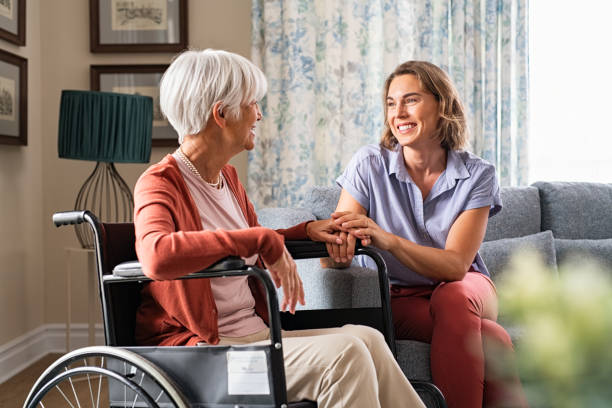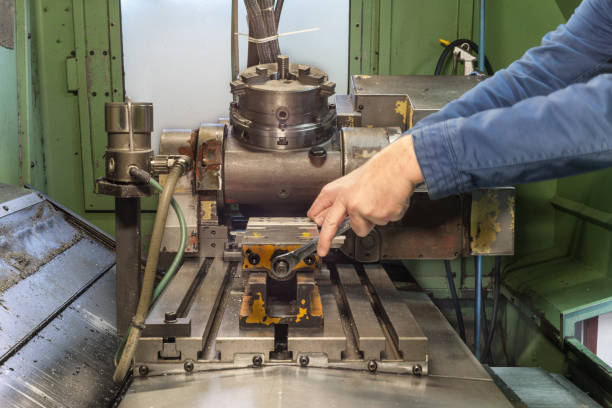As our parents age, the roles often reverse, and it becomes our responsibility to care for them in their golden years. This transition can be emotionally challenging and physically demanding, especially if our parents require specialized care due to health issues or limitations.
Quality elderly care plays a crucial role in ensuring the overall well being of aging parents, as it addresses their medical, emotional, and social needs. In this article, we will explore the impact of quality elderly care on the overall well being of aging parents and discuss the different types of care options available.
The Importance of Quality Elderly Care
Caring for aging parents is a significant responsibility that can have a profound impact on both the caregivers and the elderly individuals.
Quality elderly care is essential in ensuring that this responsibility is managed effectively and compassionately, providing the necessary support and resources for all involved. Quality elderly care is essential for several reasons:
1. Addressing Medical Needs
As individuals age, they are more likely to develop chronic health conditions or experience age-related ailments.
Quality elderly care ensures that aging parents receive the medical attention they need to manage their conditions effectively. This includes regular check-ups, medication management, and monitoring for any changes in health status.
2. Promoting Emotional Well being
Older adults may experience feelings of loneliness, isolation, or depression, especially if they are living alone or have limited social interactions.
Quality elderly care provides emotional support and companionship, helping aging parents feel valued, loved, and connected to others. Caregivers play a crucial role in providing emotional support and creating a nurturing environment for their parents.
3. Ensuring Safety and Security
As individuals age, they may become more vulnerable to accidents, falls, or injuries. Quality elderly care focuses on creating a safe and secure environment for aging parents, reducing the risk of accidents and ensuring their physical well-being.
This includes installing safety aids in the home, such as grab bars, non-slip mats, and emergency call buttons.
4. Enhancing Quality of Life
Quality elderly care aims to enhance the overall quality of life for aging parents by addressing their physical, emotional, and social needs.
This may include engaging in stimulating activities, promoting healthy eating habits, and encouraging physical exercise. Caregivers play a vital role in creating a positive and nurturing environment that supports the well-being of their parents.
Types of Elderly Care Options
There are various types of elderly care options available to meet the diverse needs of aging parents.
The choice of care will depend on factors such as the health status of the elderly individual, their level of independence, and the preferences of both the caregiver and the parent. Some common types of elderly care options include:
1. In-Home Care
In-home care involves hiring a caregiver to provide assistance and support to aging parents in their own home.
This type of care allows elderly individuals to remain in a familiar and comfortable environment while receiving the help they need. In-home caregivers can assist with activities of daily living, medication management, meal preparation, and companionship.
2. Assisted Living Facilities
Assisted living facilities are residential communities designed for older adults who require some assistance with daily activities but do not need round-the-clock medical care.
These facilities offer a range of services, including meals, housekeeping, transportation, and social activities. Assisted living facilities provide a supportive environment for aging parents while promoting independence and social engagement.
3. Nursing Homes
Nursing homes are long-term care facilities that provide 24-hour skilled nursing care for older adults who have complex medical needs or require assistance with activities of daily living.
Nursing homes offer a higher level of medical care and supervision compared to assisted living facilities. They are suitable for aging parents who need specialized medical attention and ongoing support.
4. Memory Care Facilities
Memory care facilities are designed for older adults with Alzheimer’s disease or other forms of dementia. These facilities provide specialized care and support for individuals with memory loss, cognitive impairment, and behavioral challenges.
Memory care facilities offer a secure and structured environment that meets the unique needs of seniors with dementia.
5. Respite Care
Respite care provides temporary relief for caregivers who need a break from their care giving responsibilities. This type of care allows aging parents to stay in a care facility for a short period, allowing their caregivers to rest and recharge.
Respite care is essential for preventing caregiver burnout and ensuring the well-being of both the caregiver and the elderly individual.
The Impact of Quality Elderly Care on Overall Well being
Quality elderly care has a significant impact on the overall well being of aging parents, as it addresses their physical, emotional, and social needs. Here are some ways in which significantly enhance overall well-being and assisted living services seniors living in Manitowoc benefit from providing the necessary support for a healthy, fulfilling lifestyle.
1. Improved Physical Health
Quality elderly care ensures that aging parents receive the medical attention and support they need to maintain their physical health. This includes regular check-ups, medication management, and assistance with activities of daily living.
By addressing their medical needs effectively, elderly individuals can stay healthy, active, and independent for longer.
2. Enhanced Emotional Well being
Quality elderly care provides emotional support and companionship to aging parents, helping them feel valued, loved, and connected to others. Caregivers play a crucial role in creating a nurturing environment that promotes emotional well-being and mental health.
By addressing their emotional needs, elderly individuals can enjoy a higher quality of life and a sense of fulfillment.
3. Increased Social Engagement
Quality elderly care promotes social engagement and interaction for aging parents, reducing feelings of loneliness and isolation. Caregivers can facilitate social activities, outings, and gatherings that help elderly individuals stay connected to their loved ones and the community.
Social engagement is essential for maintaining mental sharpness, emotional well-being, and a sense of belonging.
4. Enhanced Quality of Life
Quality elderly care enhances the overall quality of life for aging parents by addressing their physical, emotional, and social needs.
This includes engaging in stimulating activities, promoting healthy eating habits, and encouraging physical exercise. Caregivers play a vital role in creating a positive and nurturing environment that supports the well-being of their parents.
Tips for Providing Quality Elderly Care
Caring for aging parents can be a rewarding but challenging experience. Here are some tips for providing quality elderly care and ensuring the well-being of your loved ones:
1. Communication
Effective communication is key to providing quality elderly care. Listen to your aging parents’ needs, preferences, and concerns, and involve them in decision-making regarding their care. Keep the lines of communication open and transparent to ensure that everyone is on the same page.
2. Patience and Empathy
Caring for aging parents requires patience, empathy, and understanding. Be sensitive to their emotions, limitations, and struggles, and provide support and encouragement during difficult times. Show empathy and compassion in your interactions with them to create a caring and nurturing environment.
3. Establish a Routine
Establishing a routine can help create structure and predictability for aging parents. Set a schedule for meals, medication, activities, and rest to ensure that they receive the care they need consistently. A routine can also help reduce anxiety, confusion, and disorientation in elderly individuals.
4. Seek Professional Help
Don’t hesitate to seek professional help if you feel overwhelmed or unable to meet the needs of your aging parents on your own. Consider hiring a caregiver, enrolling them in a day program, or exploring other care options that can provide the support they need. It’s essential to prioritize your well-being as a caregiver to ensure that you can provide quality care to your loved ones.
5. Take Care of Yourself
Self-care is crucial when caring for aging parents. Take breaks, prioritize your physical and mental health, and seek support from friends, family, or support groups. Remember that you cannot pour from an empty cup, and taking care of yourself is essential for providing quality care to your loved ones.
Conclusion
Caring for aging parents is a significant responsibility that requires compassion, patience, and dedication. Quality elderly care plays a crucial role in ensuring the overall well being of aging parents by addressing their physical, emotional, and social needs.
By providing quality care and support to aging parents, caregivers can enhance their loved ones’ quality of life and help them age with dignity and grace. Remember that you are not alone in this journey, and there are resources, support, and options available to help you navigate the challenges of caring for aging parents.
Stay in touch to get more updates & news on essentialtribune !








